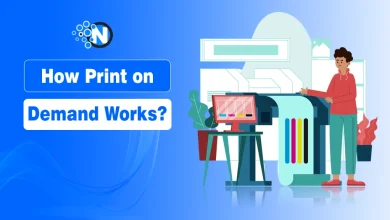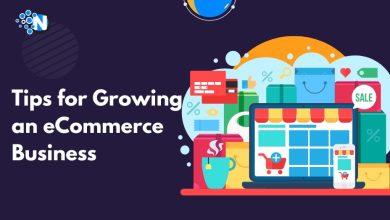
As any experienced ecommerce operator will tell you, it’s not enough to have a good idea; you must also find a platform that meets your needs and is prepared to grow with your establishment.
To that end, we are reviewing two options in the space; one.com and Shopify, to figure out what they offer and who each platform is best suited to. In this comparison of One Shop vs Shopify, we offer the information required to choose one that works best for you.
<strong>Overview of One.com</strong>
one.com is renowned for offering a versatile solution aimed at small businesses and individuals. Right off the bat, you get services about domain registration, professional email addresses, website hosting, SEO (Search Engine Optimization) capabilities, and a user-friendly and intuitive website builder.
One.com also emphasizes online security with SSL certificates and daily backups, giving you peace of mind about customer safety and business continuity. Some of the established businesses that run on it are Kurhotel Skodsborg, Montrium, Bancore, and more.
<strong>Overview of Shopify</strong>
Shopify is a well-known name in eCommerce and a dominant global force. The platform it provides is robust and intended for businesses to build, manage, and scale up their stores. The offered features consist of customizable templates, integrated payment processing, comprehensive SEO features, and extensive app integrations to enhance functionality.
It is preferred by businesses of all sizes but can handle the largest stores in the world, including names such as Red Bull, Hasbro, Heinz, and more.
<strong>Key Comparisons</strong>
1- Getting Started
One.com
One.com is designed to be easy to use, even for non-technical people without programming knowledge. Its website builder, for instance, is straightforward. Further, it permits users to create professional websites from highly customizable templates with ease.
Users who need more functionality features can choose to build their website and host it with offered plans.
This setup makes one.com a godsend for people looking to establish personal websites and small- to medium-scale online shops. In this way, it could be less suited out-of-the-box for more advanced features.
Shopify
Shopify strives to be user-friendly too, but can offer all the advanced features ecommerce operations need to get started and grow. Beginners may find the initial setup a bit complex, but extensive resources, like support and tutorials, make the process more approachable.
There is also a large ecosystem of apps and integrations, which developers can help you implement and maintain over time.
<strong>Ecommerce capabilities</strong>
To get a much clearer look at how the two platforms compare for people looking to start a shop! here’s a comparison of the ecommerce capabilities you can expect:
1- Product Management
One.com
You can create and manage an unlimited number of products, with groupings into categories for a more organized look.
To keep track of your stock, you get inventory management with notifications for when you’re running low.
Shopify
Shopify offers a specialized experience with unlimited products. Each with multiple variants, inventory management, and bulk product import/export with CSV files.
2- Payment Processing
One.com
One.com supports payment methods that include credit cards, PayPal, Google Pay, Apple Pay, and more through integrations with Stripe and other payment gateways.
It doesn’t charge additional transaction fees on top of what your payment provider already charges.
Shopify
Shopify is known to support over 100 payment gateways, including Shopify Payments, Stripe, PayPal, etc.
You also get the automatic display of prices in local currencies based on customer location.
There are also built-in fraud detection tools for large operations to identify fraudulent orders.
3- Order Management
One.com
You can easily track orders from a single interface, mark manual orders as paid, and create invoices.
The shop can also integrate with shipping services like Shipmondo to offer options like pre-negotiated carrier rates and local pickups.
Shopify
Users can track and update orders in real time. There are integrations with major carriers like FedEx and DHL as well as real-time shipping rates.
You can also get options for third-party fulfillment services and dropshipping.
4- Customization and Templates
One.com
One.com provides over 140 fully responsive templates that look great on any device.
You also get a drag-and-drop interface to customize any of them to fully match your vision.
Shopify
Shopify not only provides thousands of fully responsive, professionally designed themes (free and paid), but also a drag-and-drop editor for easy customization.
You also get full access to HTML, CSS, and Liquid (Shopfy’s template language) to make advanced customization.
5- Marketing and SEO
one.com
With built-in SEO tools, you can improve search rankings, as well as integrate with Google Business Listings and Google Analytics to increase visibility.
There are also integrations to analyze traffic flow and derive insights to inform future marketing campaigns.
Shopify
SEO features on Shopify include customizable title tags, meta descriptions, and URL handles. You also get Automatic sitemap generation and integration with Google Analytics.
There is integration with email marketing tools, social media platforms, and Google ads. You can also create and manage discount codes, gift cards, and promotional campaigns.
6- Security
one.com
With secure payment processing and a free SSL certificate, you can rest assured your customers are safe as you build your brand and trust.
Shopify
In addition to being Level 1 PCI DSS compliant, Shopify also provides a free 256-bit SSL certificate for secure transactions, regular backups, and secure data storage.
Given its specialized nature, Shopify has tracking key performance indicators, customer segmentation for more targeted marketing, multi-channel selling, a mobile app for on-the-go management, an app store, and more.
<strong>Match Your Needs To The Platform</strong>
Choosing between one.com and Shopify is dependent on your needs. For those with a small budget and no need for advanced features they may not need, one.com presents an approachable deal with all the basic functionalities to start and run an online shop.
However, if you focus on building an eCommerce operation with extensive features and scalability, Shopify provides a more comprehensive platform. The process should start with creating a checklist of what you require and finding a platform that meets your expectations while considering your budget.




